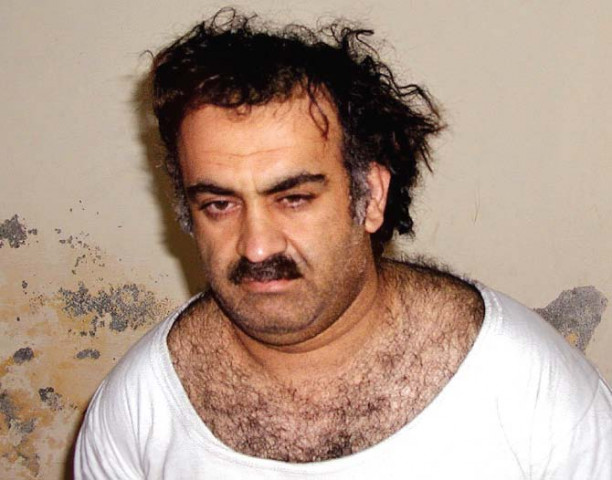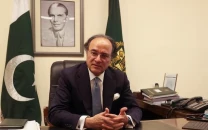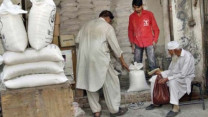‘Trial of the century’: 9/11 mastermind set to face US military court
Majid Khan may testify against the Pakistani national.

Nine years after his arrest in Pakistan, self-proclaimed 9/11 mastermind Khaled Sheikh Mohammed could soon be back in court for the much-awaited “trial of the century.”
After years of delays, a significant step took place last week when a former aide to Mohammed, Majid Khan, accepted a plea deal with US authorities that will require him to testify against other terror suspects at a tribunal at Guantanamo Bay, Cuba.
More than a decade after the 2001 attacks that left nearly 3,000 people dead on US soil, the 46-year-old extremist known simply as “KSM” remains the ultimate figurehead in a legal battle fought by two successive US administrations.
“Barack Obama can claim credit for killing Osama bin Laden and al Qaeda cleric Anwar Al-Awlaqi, and nailing KSM would complete the hat trick and help quiet the conservative fear-mongers who say he’s weak on terrorism,” former chief US military prosecutor Colonel Morris Davis told AFP.
Victory in the trial could prove critical to Obama this year in his re-election bid, where he faces Republicans critical of his approach to terrorism. The Democratic president had sought to hold a trial for KSM and his four accused accomplices in New York, just steps from the Ground Zero site where the World Trade Centre’s twin towers fell.
KSM, along with Walid bin Attash of Saudi Arabia, Yemen’s Ramzi bin al-Shibh, Pakistan’s Ammar al-Baluchi or Ali Abd al-Aziz Ali and Mustafa al-Hawsawi of Saudi Arabia, all face possible death penalties.
The 88-page indictment lists 2,976 murder counts for each of the victims of the coordinated attacks.
“Let’s get rid of the alleged. KSM has admitted (the crimes) many times,” said Michael Mukasey, who served as US attorney general under Bush.
KSM’s first confessions were made when he was subjected 183 times to a simulated drowning method known as waterboarding and other so-called “enhanced” interrogation techniques at a secret CIA prison after his March 2003 capture.
But “no statement obtained as a result of coercion can be used” in a military commissions trial, chief prosecutor Brigadier General Mark Martins said in an interview.
Although KSM has since repeated his confessions, the prosecution needs to obtain statements that are legally admissible in court. This is where Khan’s awaited testimony fills the gap.
The Pakistani national, who lived legally in America and graduated from a US high school, pleaded guilty at Guantanamo to a reduced charge of “conspiracy” to commit terrorism in exchange for a lighter sentence.
“If Khan provides information on KSM and others, as has been suggested was part of the deal, it will no doubt speed up the prosecutions,” said Karen Greenberg, a terrorism expert at Fordham Law School.
With Khan’s testimony in hand, KSM can be officially tried before a Guantanamo judge, which observers say could take place at any time. Although the defendants might make pre-trial appearances soon, the crucial trial could be months away.
Published in The Express Tribune, March 12th, 2012.



















COMMENTS
Comments are moderated and generally will be posted if they are on-topic and not abusive.
For more information, please see our Comments FAQ